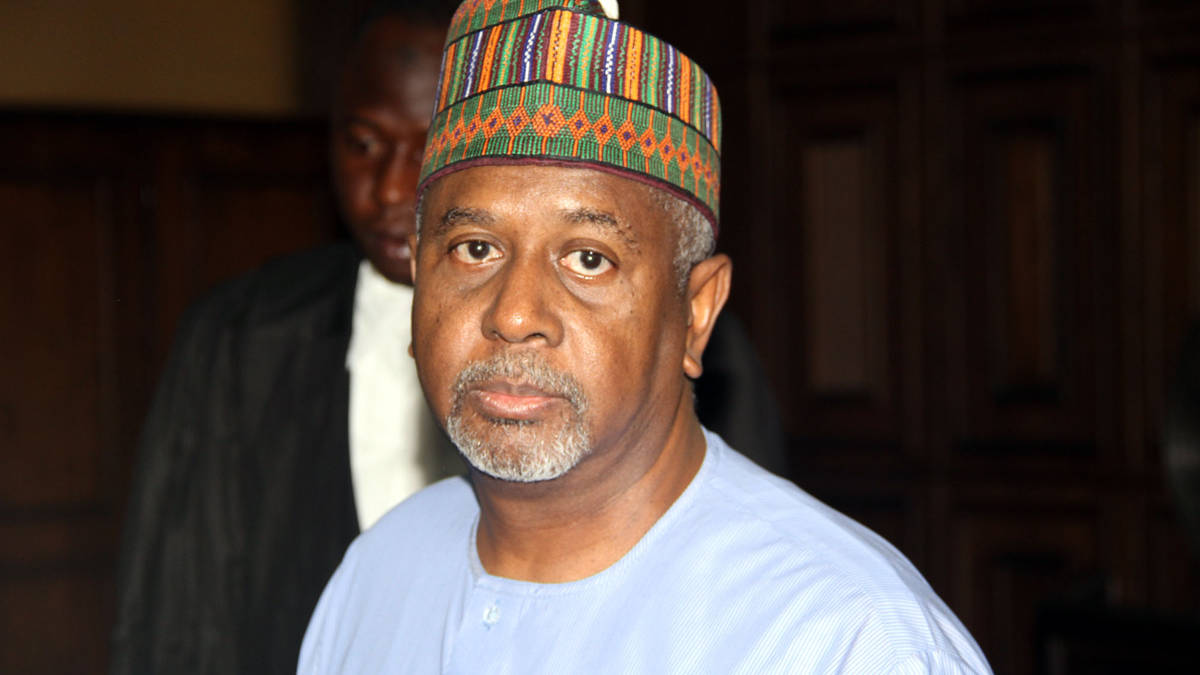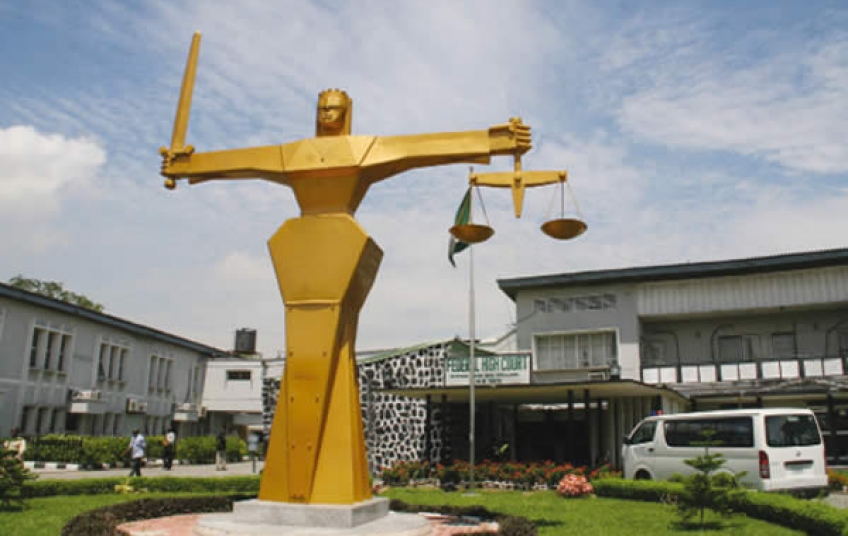Metuh’s Trial: I Don’t Want To Implicate Myself, Dasuki Tells Court
Detained former National Security Adviser, NSA, Col. Sambo Dasuki, retd, on Tuesday, gave reasons why he would not testify in the ongoing trial of erstwhile National Publicity Secretary of the Peoples Democratic Party, PDP, Chief Olisa Metuh.
Dasuki maintained that it would not be proper for him to appear as Metuh’s witness before the Federal High Court in Abuja since he was already labelled as an accomplice in the charge.
Addressing the court through his lawyer, Mr. Ahmed Raji, SAN, the former NSA said he would not mount the witness box to implicate himself, saying he had yet to receive a copy of the subpoena the court issued to compel his attendance in the matter.
He told the court that his state of mind “is currently in turmoil because of the protracted unlawful detention by the Department of State Service”.
Dasuki stated his position on a day trial Justice Okon Abang confirmed that the court had equally summoned former President Goodluck Jonathan to appear on Wednesday to give evidence in the case.
Justice Abang said his decision to summon Jonathan was in the overall interest of justice and fair-hearing.
Metuh who is answering to a seven-count charge the Economic and Financial Crimes Commission, EFCC, preferred against him and his firm, Destra Investment Limited, had described both Jonathan and Dasuki as his “very important and crucial witnesses”.
EFCC is prosecuting the defendants over allegation that they received N400million from the Office of the National Security Adviser, ONSA, before the 2015 presidential election, without executing any contract.
It said the fund which was released to Metuh and his firm by Dasuki, on the order of former President Jonathan, was part of about $2.1billion earmarked for the purchase of arms to fight insurgency in the North East.
The former PDP spokesman was equally accused of engaging in money laundering. EFCC alleged that he was involved in an illicit transaction that involved the exchange of $2m.
Metuh’s lawyer, Dr. Onyechi Ikpeazu, SAN, told the court that his client decided to apply for subpoena ad testificandum to be issued against Jonathan after the ex-President snubbed letters his chambers wrote to him with respect to the case.
Meanwhile, at the resumed sitting on the matter Tuesday, Justice Abang said he summoned Jonathan in line with a ruling of the Court of Appeal in Abuja that faulted his earlier refusal to grant Metuh’s request for subpoena to be issued against Dasuki.
He said: “Indeed, at the close of business yesterday being October 23, 2017, precisely at about 3.59pm, the registrar forwarded to the court in chamber a subpoena to compel former President Goodluck Jonathan to appear in court to testify a the instance of the first defendant (Metuh).
“Therefore in line with section 241(1) of Administration of Criminal Justice Act 2015 and having regard to the subsisting judgment of the Court of Appeal in the appeal CA/A/159C/2017, between Olisa Metuh and Federal Republic of Nigeria dated September 29, 2017 to the effect that it will be tantamount to violating the right of the first defendant to fair hearing not to sign the subpoena.
“I have no option other than to sign a subpoena to compel former President Goodluck Jonathan to appear in court on September 25, 2017 (Wednesday)to give evidence at the instance of the first defendant.”
A registrar of the court however confirmed to the Judge Tuesday that the court’s bailiff could not serve the subpoena on Jonathan.
Metuh had in his application, requested that the summon be served on Jonathan in his Abuja home.
However, despite inability of the court’s bailiff to reach the former President, Justice Abang maintained yesterday that the two subpoenaed witnesses (Jonathan and Dasuki) must be in court today. Justice Abang said he would firstly rule on Dasuki’s motion to set aside the subpoena against him, before resuming hearing on the case. The former NSA had in his motion dated September 20 and predicated on section 255, 492(3) of the ACJA, 2015, sections 183 & 198(2) of the Evidence Act, 2011, and section 36(6) of 1999 Constitution, challenged the subpoena against him.
He prayed the court for, “An order to set aside the issuance and service of the subpoena ad testificandum issued by this honourable court, for the purpose of compelling Col. Mohammed Sambo Dasuku, Rtd, to give evidence in this case.





